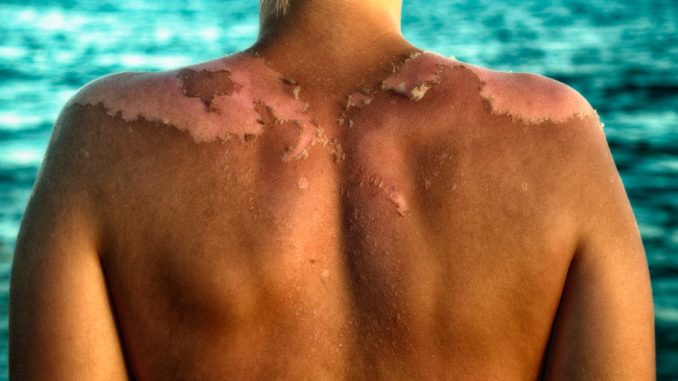Sunscreen Chemicals Are Absorbed into Your Bloodstream After All, Study Finds

In a small new study published in JAMA, scientists found that some of the active ingredients in sunscreen are absorbed into the body and into the bloodstream.
“It’s not normally the FDA’s purview to provide data,” Dr. Theresa Michele at the FDA says, “but we considered this so important that we did go out and do a pilot study to jump start [research] on this.”
Oregonlive.com reports: Sunscreen lotion, it’s long been believed, primarily stays in your skin tissue, where it blocks the sun’s cancer-causing brilliance. But a small clinical trial of 24 people has now revealed that “four of the most common sun-filtering molecules on the market” absorb into the body and make it into the bloodstream.
“Now, don’t panic and toss your tubes,” Megan Molteni writes for Wired. “There’s no evidence yet that [those molecules are] doing anything harmful inside the body. But the revelation will have serious impacts on sunscreen manufacturers going forward, and may change what options you’ll find on drugstore shelves before the year is out.”
The reason some products could be removed from the market in the short term?
From the new study: “The US Food and Drug Administration (FDA) has provided guidance that sunscreen active ingredients with systemic absorption greater than 0.5 ng/mL … should undergo nonclinical toxicology assessment including systemic carcinogenicity and additional developmental and reproductive studies.”
The new preliminary research found that absorption is indeed greater than the FDA’s recommended limit. And follow-up “assessment” will take some time.
To be clear, there’s no evidence that the products that help prevent skin cancer cause different kinds of cancer or any other problems. No such research has been done. The small-scale study’s authors point out: “These results do not indicate that individuals should refrain from the use of sunscreen.”
“There might be nothing, and that would be great,” UC San Francisco dermatologist Kanade Shinkai said. “But the problem is that we just don’t know.”



